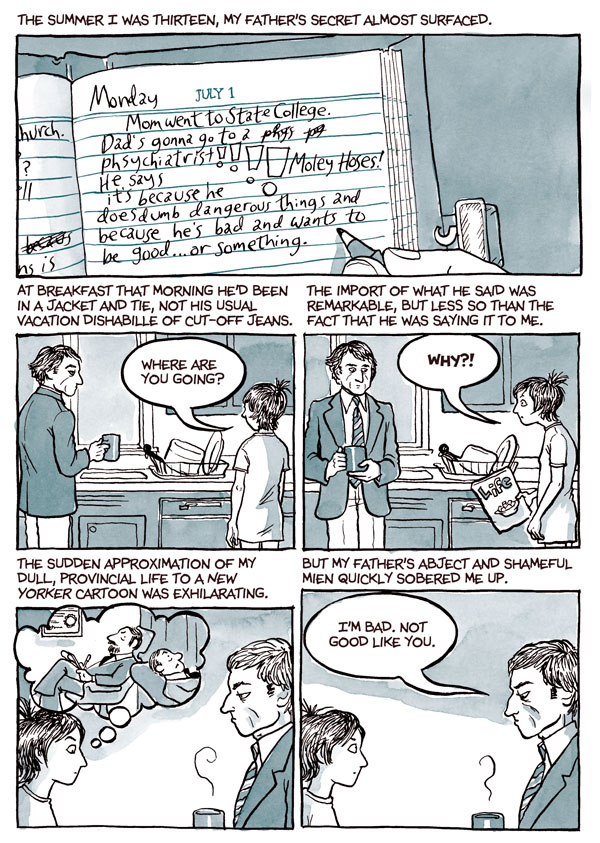

Witty wordplay is one of the book’s most attractive features. She then digs deeper into the details, filling the holes in the temporal map of their relationship while making endless thematic connections across everything available, including ancient mythology, plays, films, and the sociopolitical events of the times and places. They affect us in a way that clearly no longer affects Bechdel, a tactic she expounds upon later in the book. The opening chapter summarizes his late life, declaring the turning points and revelations with a shocking nonchalance. The tale focuses on Bechdel’s life, through adolescence and college, and on her father, an English teacher, operator of a funeral parlor, and closeted homosexual. The result of the mixture is ultimately humanizing, intimate, and a new graphic novel to add to the small list of works that can be recommended to full-blown skeptics of the medium.

The way Fun Home often visually displays its events, through maps, letters, diary entries, newspaper headlines and dictionaries creates a trail of evidence, even as Bechdel uses imaginary tales to convey the strangeness of her family. Bechdel frames the events with the lives and tales of literary authors and refers to her family as if they were fictions themselves, with “heavy-handed plot devices” shaping their lives. A memoir that sees itself as a kind of fiction, Fun Home: A Family Tragicomic explores the absurdities of Alison Bechdel’s upbringing while simultaneously delivering them as exquisite truths, filling its pages with psychological insight and clever literary allusion.


 0 kommentar(er)
0 kommentar(er)
